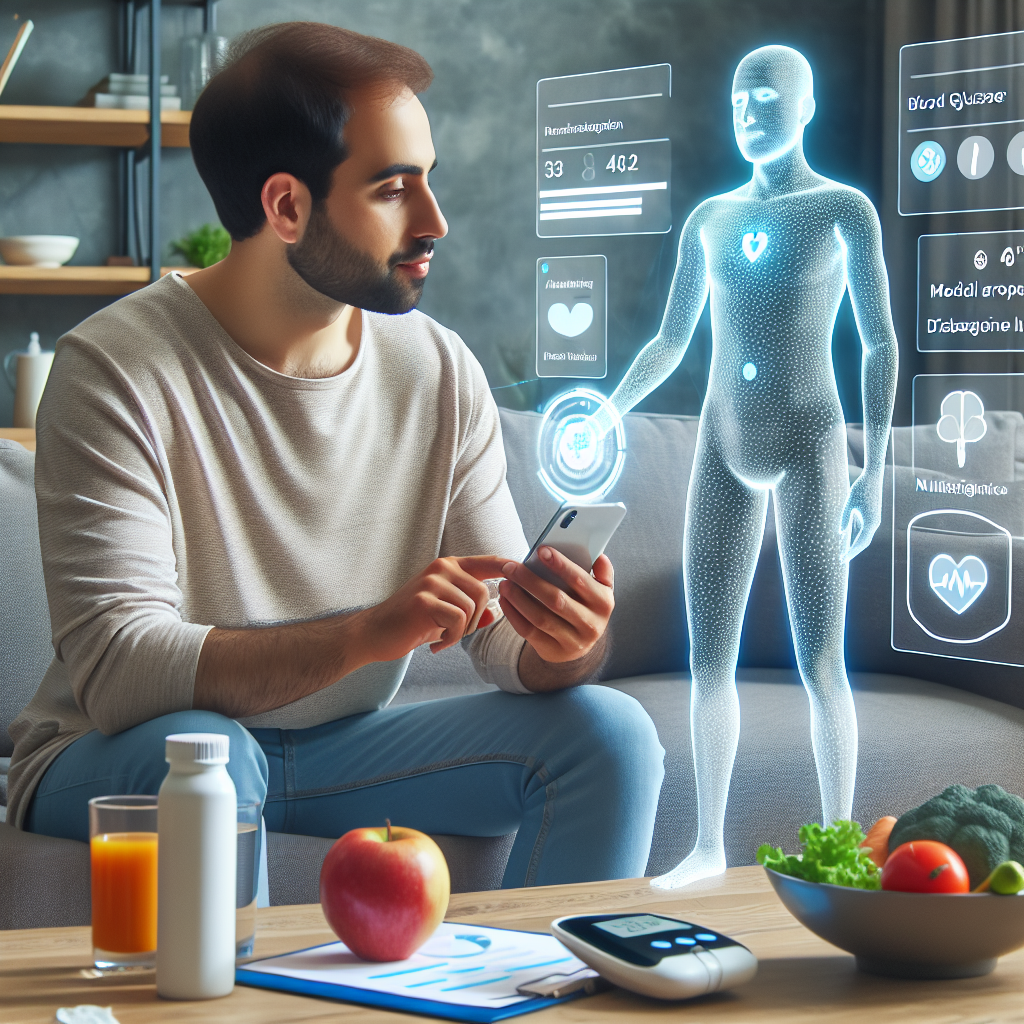As technology continues to evolve, Artificial Intelligence (AI) has emerged as a game-changer in various fields, including healthcare. One of the most remarkable areas where AI is making significant strides is in the management of diabetes. This chronic condition, which affects millions worldwide, requires meticulous and continuous monitoring. Fortunately, advancements in AI are paving the way for more efficient, personalized, and proactive approaches to diabetes care.
The Growing Need for Advanced Diabetes Management
Diabetes is a complex disease that demands constant vigilance to prevent complications. Traditional methods of managing diabetes include regular blood glucose testing, insulin administration, dietary adjustments, and regular medical check-ups. However, these methods can be time-consuming and burdensome for patients. Thus, there is a growing need for more sophisticated tools to empower individuals in taking control of their condition.
How AI is Transforming Diabetes Management
The integration of AI in diabetes care is revolutionizing the way patients and healthcare providers manage the disease. Here are some ways in which AI is making a notable impact:
- Predictive Analytics: AI algorithms can analyze massive datasets to predict blood sugar fluctuations. These predictions allow patients to take preemptive actions to maintain stable glucose levels.
- Personalized Treatment Plans: AI can tailor treatment plans based on an individual’s unique data, ensuring a more customized approach to managing diabetes.
- Continuous Glucose Monitoring (CGM): Advanced CGM systems driven by AI provide real-time insights into glucose levels, enabling timely modifications in diet or insulin dosage.
- Automated Insulin Delivery: Hybrid closed-loop systems, often termed as artificial pancreas, leverage AI to automate insulin delivery, minimizing the risk of hypo- and hyperglycemia.
Predictive Analytics: Foreseeing Future Trends
One of the most profound applications of AI is predictive analytics. By processing historical and real-time glucose data, AI can forecast trends and potential fluctuations in blood sugar levels. This predictive capability allows patients to anticipate changes and adjust their routines accordingly. For instance:
- **AI-driven models** can project glucose levels based on various factors such as diet, activity, and stress levels.
- **Alerts and notifications** can be sent to patients when their glucose levels are predicted to go beyond the safe range, prompting timely interventions.
Personalized Treatment Plans: A Tailored Approach
Every person’s body responds differently to diabetes treatment. AI excels in creating personalized treatment plans by analyzing extensive data unique to each patient. These customized plans consider various aspects, such as:
- Current health status and medical history
- Daily glucose patterns and behavioral trends
- Lifestyle factors, including diet and physical activity
By integrating such diverse data, AI can recommend highly individualized treatment regimens, optimizing therapeutic outcomes for each patient.
Continuous Glucose Monitoring: Real-Time Data for Better Decisions
The introduction of AI in continuous glucose monitoring (CGM) systems represents a substantial leap in diabetes care. Unlike traditional methods that require finger-prick tests, CGM devices provide continuous, real-time information about glucose levels, offering numerous benefits:
- **Realtime Insights:** AI-enabled CGM devices deliver instant feedback on blood sugar levels, allowing for immediate action.
- **Trend Analysis:** Long-term data collection and AI analysis help detect patterns and trends, facilitating more informed decision-making.
Automated Insulin Delivery: The Future is Here
Another groundbreaking innovation is the development of hybrid closed-loop systems, commonly known as artificial pancreas. These devices leverage AI to monitor blood glucose levels and administer insulin automatically. Key advantages include:
- **Precision:** AI algorithms ensure precise insulin dosages, reducing the margin for human error.
- **Convenience:** Patients can experience greater ease and comfort, as the system automatically adjusts insulin delivery.
- **Safety:** Continuous monitoring coupled with automated insulin delivery mitigates the risks of hypoglycemia and hyperglycemia.
The Role of Healthcare Providers
While AI introduces remarkable advancements, the role of healthcare providers remains crucial. Medical professionals interpret AI-generated data to refine treatment plans and offer personalized recommendations. Moreover, they provide the essential human touch in patient care, addressing the emotional and psychological aspects of living with diabetes.
Challenges and Considerations
Despite the promising potential of AI in diabetes management, several challenges remain. Issues such as data privacy, the need for robust algorithms, and ensuring equitable access to AI technologies are essential considerations. Ongoing research and collaboration between technology providers, healthcare professionals, and regulatory bodies are vital to overcoming these hurdles.
The Future of AI in Diabetes Care
The potential for AI to positively impact diabetes management is vast and continues to expand. Future innovations may include enhanced predictive models, more sophisticated CGM devices, and further advancements in automated insulin delivery systems. As research progresses, AI-driven tools will become even more integrated into daily diabetes care, offering hope for a healthier, more manageable future for diabetics.
Conclusion
AI is undoubtedly revolutionizing diabetes management, offering advanced solutions that empower patients to take control of their health. By leveraging predictive analytics, personalized treatment plans, continuous glucose monitoring, and automated insulin delivery, AI is ushering in an era of improved outcomes and better quality of life for those living with diabetes. As we continue to navigate this exciting frontier, the synergy between technology and healthcare will undoubtedly lead to groundbreaking advancements in diabetes care.
“`
